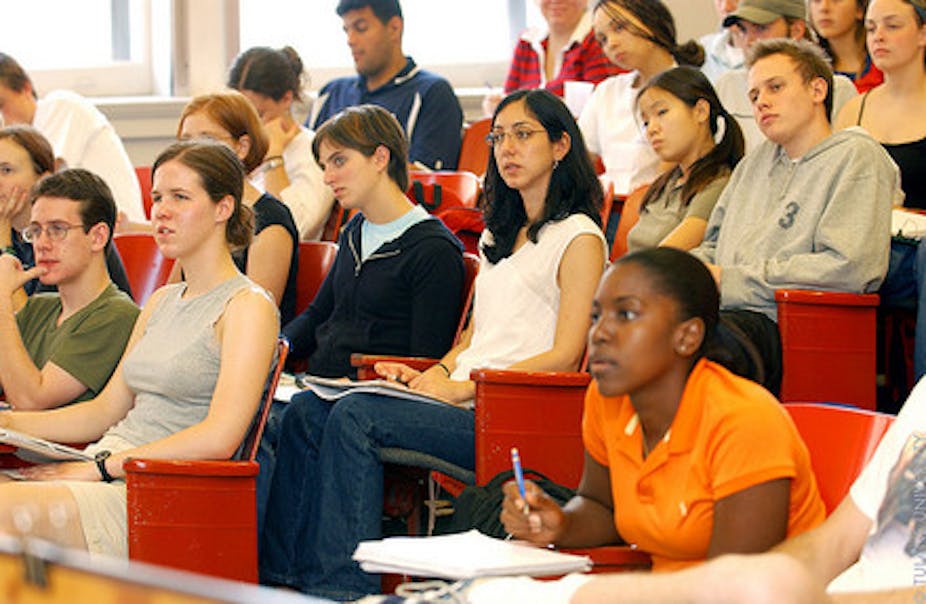Foundation Essay – A democracy needs conversations that range broadly, find space for many voices, accept new information, explore unexpected ideas, allow people to reach a judgement about the issues that matter to them. We associate such conversations with political institutions and the media. Yet universities are also a traditional site for such exchanges, a forum for the clash of ideas essential in thinking through public policy.
For universities, the challenge can be how to participate in a wider dialogue. Most scholarship is published in specialist journals, while the best campus conversations occur away from the public, in classrooms and hallways, around ideas ancient and modern. The great lecturer encourages a new generation to grapple with intellectual challenges that have preoccupied those who came earlier – along with those emerging problems that students will be first to tackle. We rely on students to carry those ideas further.
Some of this ferment finds its way to a broader discussion. Research can occasionally influence policy debates, when currents of thought seep into public conversation, usually many times removed from their original authors and context.
In the late 1960s a group of economists at the Melbourne Institute began examining health service outcomes for Australians. They documented the very different pathways for rich and poor, and suggested a universal national health insurance scheme. Though the introduction of Medibank is associated with the Whitlam government, the basic ideas of a different approach to safeguarding health was adopted quickly by both sides of politics ahead of the 1972 federal elections. The idea of universal health insurance coverage, largely unexplored for the first three-quarters of a century of Australian federation, became conventional wisdom within a short span, and the machinery invented to realise the vision has endured for a generation.
Such direct influence is rare. Much research, and most teaching, does not speak to pressing policy issues, but to broader concerns about the philosophical, historical, scientific and engineering underpinnings of our society. It remains locked on campus, a conversation for the moment, carried forward by students and scholars engaged with particular texts or questions. Campus life can foster a sense of isolation, of notions that struggle to travel.
The web has helped bridge that remoteness. It sits alongside traditional forms of public engagement - the choirs, public lectures, orchestras, theatre companies, websites, blog pages, the three minute thesis topic presentations and lively pages of student newspapers that give content to the university mission, inviting the outside in, connecting campus to surrounding community.
Publications such as The Conversation offer an opportunity to engage still further – to share findings and ideas, and provide a public space for discussion, disputation and evidence. It can become a virtual campus, a set of discussions in electronic hallways, a shaping and influence that may travel eventually beyond participants to a wider world.
This is how dialogue begins. It is how a democracy ensures the voices of the many are engaged. For as Walter Bageheot observed, more than a century ago, ‘no state can be first-rate which has not a government by discussion’.
This Foundation Essay is part of a series of articles to mark the launch of The Conversation. Others in the series are:
When the science is so clear, why is the argument so clouded? By Ross Garnaut
A better formula for science communication By Peter Doherty
What’s the point of universities? It’s the ideas, stupid By Patrick McCaughey
The science of reporting climate change By Brian McNair
How universities learnt a lesson in humility — and are all the better for it By John Keane
The modern university must reinvent itself to survive By Simon Marginson

